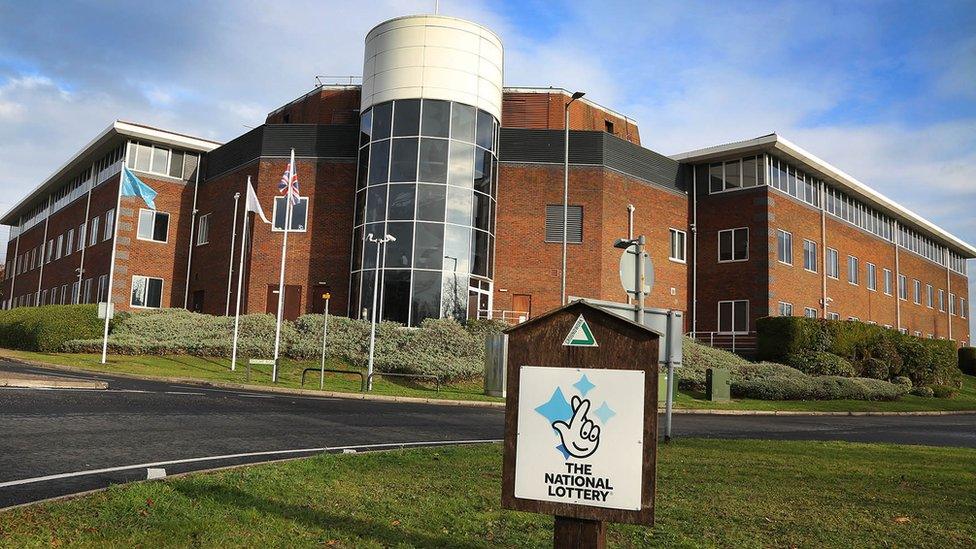National Lottery worker 'helped with fake win scam'
- Published

Edward Putman denies fraud by false representation
A man accused of claiming a £2.5m jackpot with a fake lottery ticket was helped by a National Lottery operator employee, a court heard.
Edward Putman, 54, from Hertfordshire, denies committing fraud by false representation by allegedly claiming £2,525,485 with a faked ticket in 2009.
St Albans Crown Court heard he was helped by Camelot insider Giles Knibbs, who knew how to cheat the system.
The alleged fraud came to light after Mr Knibbs took his own life.
Prosecutor James Keeley told the court Mr Knibbs worked for Camelot in Watford between 2004 and 2010 and his role in the fraud detection department allowed him the opportunity to create the false ticket, which he gave to the defendant to cash in.
The court was told Mr Knibbs had seen a document containing details of big wins which had not yet been claimed.
Mr Putman, of Station Road, Kings Langley, claimed the prize from the 11 March 2009 draw on 28 August, just before the six-month deadline passed to claim the win.
"He did not hold the winning ticket, but a forgery created by Mr Knibbs," the prosecutor said.
The genuine winning ticket has never been found, the court heard.

Camelot verified the ticket was genuine and paid out
Mr Keeley told the jury the fraud came to light after Mr Knibbs, from Bricket Wood in Hertfordshire, died at Ivinghoe Beacon in Buckinghamshire on 5 October 2015.
Mr Knibbs had allegedly told friends he had "conned" the lottery, as well as telling them about technical inaccuracies about the way the ticket was created, the court was told.
Mr Keeley said: "The veracity of his [Mr Knibbs'] narrative and thus credibility is strongly supported by the forged ticket which the defendant could not have acquired by legitimate means."
The court was told Mr Knibbs did not feel he had received his fair share of the jackpot and they had a bitter argument in June 2015.
Evidence suggested Mr Knibbs was paid an initial £280,000 from Putman for his part in the ruse, followed by smaller increments totalling £50,000, Mr Keeley said.
The argument led Mr Putman to make allegations of burglary, blackmail and criminal damage against Mr Knibbs, who was arrested, Mr Keeley said.
Mr Keeley said the ticket submitted by the defendant was badly damaged, "lacking the entire bottom section" but on 8 September, Camelot decided he was the genuine winner and paid out.
"They had been conned," the prosecutor said.
The trial, which is expected to last two weeks, continues.